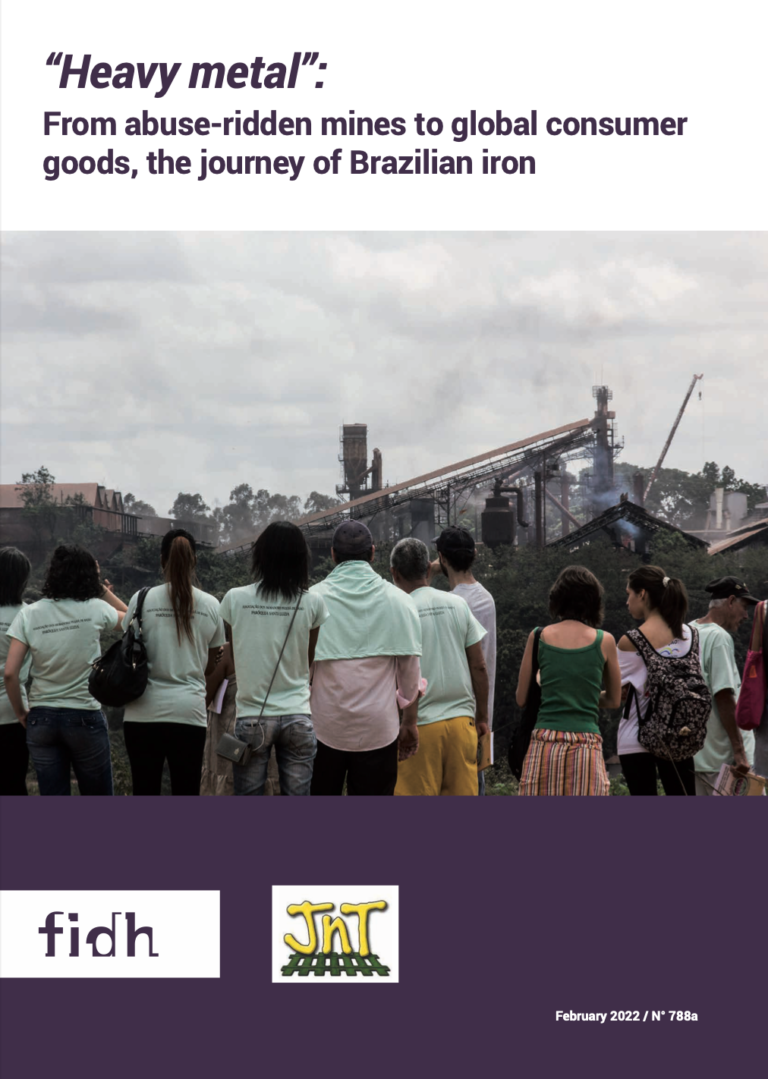Since 2010, FIDH (the International Federation for Human Rights) and Justiça nos Trilhos (JnT) have been working together on the human rights abuses of the steel industry in the state of Maranhão, in Brazil. In May 2011, FIDH and JnT, with Justiça Global, published the report “Brazil: How much are human rights worth? – The impacts on human rights related to the mining and steel industry in Açailândia,”1 produced using the COBHRA methodology (Community-Based Human Rights Impact Assessment). The report documented the impacts of the steel industry on the human rights to health, a healthy environment, adequate housing, life, physical integrity, information and participation, and access to justice, and it formulated recommendations to all stakeholders. The organizations have since repeatedly urged the international community, including the United Nations (UN) Special Rapporteur on Toxics, to put pressure on Brazil and on the responsible companies and ask for prompt redress.2 Eight years later, the persistence of the problems reported in 2011 and the impasses in the process of redressing violations of individual and collective rights led FIDH and JnT to update the analysis of the human rights violations scenario in Açailândia and publish a second report – “Piquiá Stood up for their rights: Assessing the fulfilment of recommendations to address human rights violations of the mining and steel industry in Açailândia, Brazil.”

